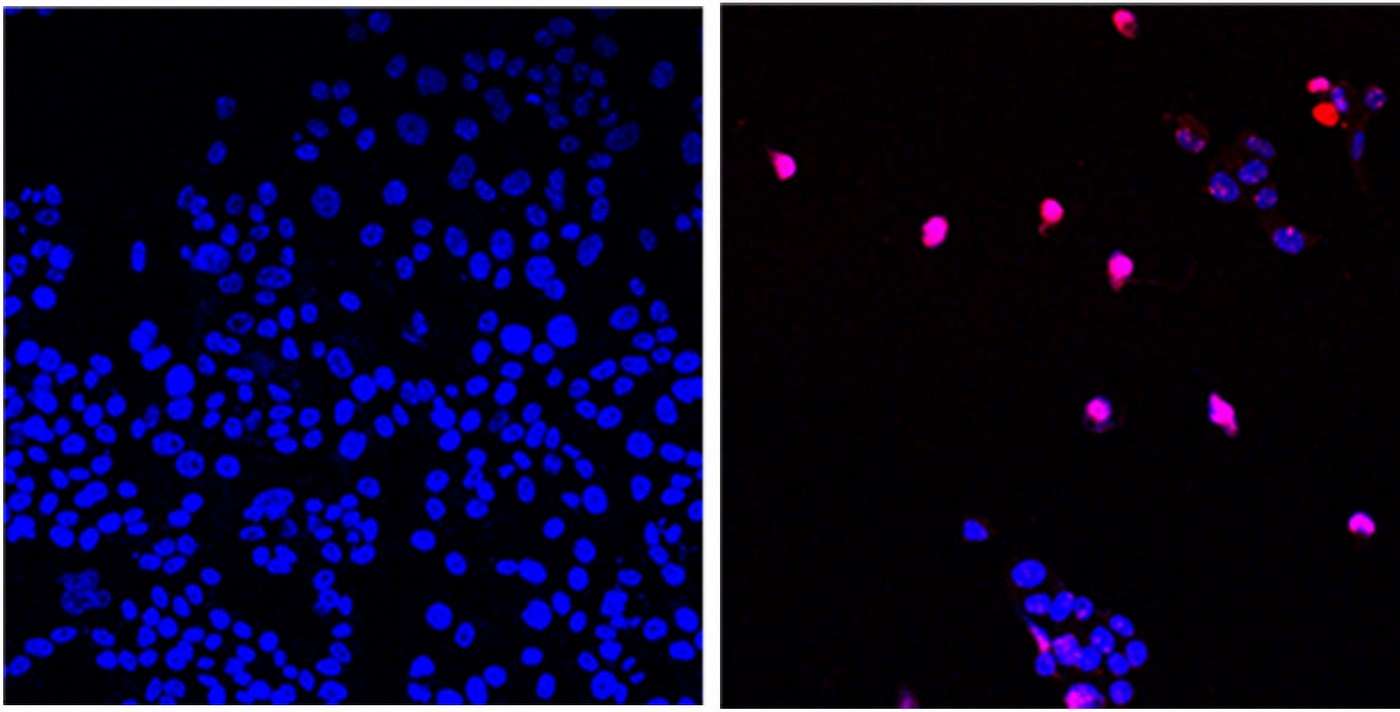Groundbreaking Immunization Against Lyme Disease Takes Aim at the Microbiomes of Ticks and Mosquitoes
This immunization is part of an emerging class of drugs called antimicrobiota vaccines, and the same concept is being applied to malaria

City of Hope today announced that the first patient to receive its novel, promising cancer medicine AOH1996 is doing well.
The Phase 1 clinical trial testing the safety of a potentially cancer-stopping therapy in people with reoccurring solid tumors is expected to continue for the next two years. The investigational pill has been effective in preclinical research treating cells derived from breast, prostate, brain, ovarian, cervical, skin, and lung cancers.
Linda Malkas Ph.D., pioneer of AOH1996 at City of Hope's Department of Molecular Diagnostics & Experimental Therapeutics, began her research 20 years ago, believing that proliferating cell nuclear antigen (PCNA), which plays an essential role in the replication and repair of cells, would be a less toxic cancer therapy that targets mutated cancer cells while leaving normal cells alone.
The new treatment has been shown in preclinical research to target PCNA and inhibit the growth and spread of a broad range of human cancer cells.
The research protocol notes that AOH1996 is not toxic to healthy cells and that treatment with this medicine both pauses cell DNA synthesis and inhibits DNA repair, leading to a type of cell death known as apoptosis in the cancer cells.
"Imagine cancer as the water filling up a bathtub. Left unchecked, the tumors or water will eventually overflow and damage other parts of your home. The treatment my team at City of Hope created is akin to a watchful homeowner who shuts the water off — stopping the spread of tumors to other parts of the metaphorical house — and then drains the tub, eliminating the cancer," said Malkas.
"No one has ever targeted PCNA as a therapeutic because it was viewed as ‘undruggable,'" said study co-author Dr. Long Gu. "We discovered that PCNA is one of the potential causes of increased nucleic acid replication errors in cancer cells."
"Now that we know the problem area and can inhibit it, we will dig deeper to understand the process to develop more personalized, targeted cancer medicines," he said.
The Phase 1 clinical trial is open at City of Hope Los Angeles. Its objective is to determine the maximum tolerated dose of the investigational pill, AOH1996, and to evaluate the medicine for preliminary efficacy.
Eligible patients include adults with solid tumors who have not found standard treatments effective. Participating patients will be asked to take the medication in pill form twice a day.
Malkas said other targeted therapies, like checkpoint inhibitors, that inhibit the growth and spread of cancer have helped innumerable cancer patients, adding that perhaps one day AOH1996 will be a U.S. Food and Drug Administration-approved inhibitor that could be used in combination with existing therapies to both enhance cancer-killing effects as well as decrease side effects related to lifesaving cancer treatments.
AOH1996 is named after Anna Olivia Healey, a young girl born in 1996 who unfortunately was not able to beat cancer. AOH1996 is exclusively licensed by City of Hope to RLL, LLC, a biotechnology company that Malkas co-founded.
With the infrastructure and support of City of Hope, Malkas was able to commercialize her basic research, moving her promising laboratory discovery into a clinical trial for people who need the therapies of tomorrow today.
SHARE This Story Of Hope From City Of Hope With Your Friends…
Be the first to comment